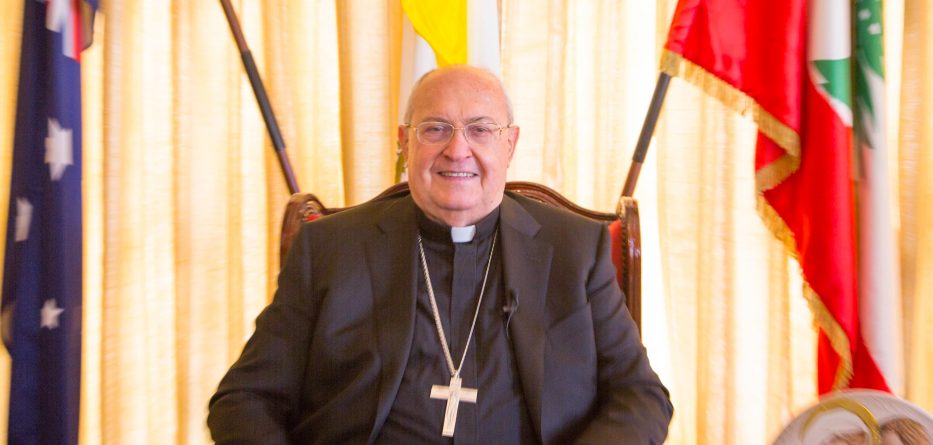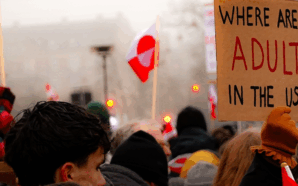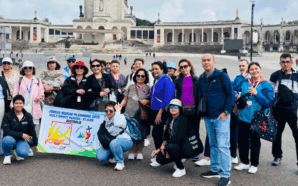SYDNEY – His Eminence, Leonardo Cardinal Sandri, Prefect of the Congregation for Oriental Churches, is visiting Australia 6 May 2017 until 15 May 2017, as part of his mission to promote and support the Eastern Catholic Churches. These Churches are in full communion with the Holy Father and preserve their autonomy and eastern traditions. Cardinal Sandri generously granted an exclusive interview with Catholic Outlook journalist, Jordan Grantham.
JG: First of all, Your Eminence, which Saints do you have a devotion to?
Cardinal Sandri: Obviously, my first devotion after Jesus Christ is His Mother, the Virgin Mary but I would like to answer this question because I was born in Argentina, and in Argentina we celebrate the birthday more than the name day, and my name of baptism is Leonardo.
He is a saint but I never had a special devotion for him until when I arrived to Rome and was entered in the Pontifical Academy for formation in the Diplomatic Corps of the Holy See. The President asked “What is your name day?’ and I said, “I don’t have one.” “You don’t have one? You are Saint Leonardo the Eremite!” And from this day I had a new devotion to him. There are many Churches in Europe dedicated to St Leonardo. In Italy, we also have Leonardo da Vinci.
But I have a devotion to the Apostles and especially to St Thomas because I needed also ‘put my finger in’ to believe, to say “My Lord and my God!”
There are many others: St Augustine and St Thomas Aquinas. I remember the visit to his Church in Naples where there is the crucifix, which said: “Bene scripsisti a me Toma” (“You wrote very well about me, Thomas”). The oriental Fathers of the Church, St John Chrysostom, for example, or the Latin Father St Peter Chrysologus, who the other day we read in our breviary: “Listen now to what the Apostle urges us to do. I appeal to you, he says, to present your bodies as a living sacrifice. By this exhortation of his, Paul has raised all men to priestly status.”
There is also a great shrine to Our Lady of Luján in Buenos Aires. The Feast was the 8th of May and we are always, with our hearts, with her son, because she is the Patroness of Argentina.
Pope Francis’ April visit to Egypt was certainly historic. The Holy Father visited the Coptic Catholic Church, Coptic Orthodox Pope Tawadros II and Al-Azhar University. What touched your heart about the visit?
You know this visit was very rich, with a great importance for the Catholic Church because it’s a little Catholic Church but she was encouraged by the Holy Father: the Bishops, the Patriarch, the seminarians, the priests, and everyone.
Secondly, it was very important for ecumenical reasons because it was the meeting with Pope Tawadros II, the great Pope of the Coptic Orthodox Church. You know they are millions, the Coptic, in one great country of Muslim people. And then there was great importance for inter-religious dialogue.
But I was very impressed in the Mass of the Pope, with the Catholic Church, when there were newly married brides with their husbands going in their own white dresses to the altar. I saw in this specific moment that there is an open future, a future through these marriages: a future of hope, of great new world of justice, peace, understanding, reconciliation.
What can Latin Catholics and Westerners in general learn from the Eastern Churches?
We are all Oriental and Latin, we are all good people but also sinners – all. But for the Oriental Churches and the Oriental Faithful, for me, it is very important to learn from the great faiths that they have and their fortitude to confess their own faiths and to always be strong, to live as Maronite, as Melkite, as Chaldean, Coptic. They are very proud of that and we need to have this same fortitude in faith. And also, not only to learn that, to learn that it is possible to give our own life for the faith.
As so many Eastern Christians so heroically do. How can Latin Catholics, and Westerners in general, help the suffering Churches in the Middle East?
Yes, we have so many possibilities. I always say the majority are ladies or men who are going and working concretely in relation with another church.
But we have each year, a collection for the Holy Land, on Good Friday. This is a moment when you can say ‘I don’t know what I can do for them, but on this day, before Christ is crucified, I can give my gesture of humility and generosity for them’, even if it is not so big.
Is there a special moment that you would like to share about your participation in the Liturgies of the East?
I would like to say to you that I am a Latin, a follower of the Latin Liturgy, of the Latin theology. But I have the occasion to have more contact if we study the Fathers of the Church. With the oriental liturgies, is for me a great revelation because you can put again your own existence before God and I can say ‘you are nothing before God and God is all for us’. God is the Father, mercy, revealed in Jesus Christ and by the Holy Spirit, we must live in connection with Him.
Then, when you participate in the eastern liturgies, you can appreciate this especially: the underlining or highlights about the mercy of God and how you and me are sinners before God and we need his mercy, we need his friendship and his blessings and his pardon.
Would you like to say anything to the faithful in western Sydney and the Blue Mountains?
Thank you for this interview and this filming by the Parramatta Diocese.
And yes, I’d like to say to all of you, dear brothers and sisters that we need to live as Christians. We need to know our faiths, to know the words of the Lord but especially we need to live as testimony of our lives for others because if we are teaching with words, it is good but the best teaching is with our own testimony and life.
For that, always be close to all the oriental faithful of these Churches who are here, the Australian people have a great open heart to receive them and give them all the assistance that they need for their Churches, schools, activities.
Then I’d like to say to you now the new great exodus in the world is the exit from the Middle East: Muslims, Christians, all the people. Then, in your parishes, dear brothers and sisters, and in their own areas of your life, you can find and visit these churches and help them.
And I would like to add that many of them now, when they arrive here in the occidental countries, such as Australia or Europe, or the United States, or Canada, they found that the faith is not so strong. Then they with their own lives and their own liturgies can illuminate also, they can be missionaries for you, for me, for all the occidental people.
What is your impression of Australia?
For me, this is my first time. Australia is always a dream of immensity, generosity, and all these things that you have here. It’s all magnificent. I would like to say that for me it’s very good to see the openness and generosity that Australia has for all people in need. We also have to be careful of terrorism and in these days, certainly all the precautions but Australia is still sending a message to the world: ‘We are in the line of people helping those who are in need.’
For me, now it is always there to have particular attention to all these difficulties and threats and especially, we must never accept these threats in the name of God and of religion.
And I had the occasion to say all that to the Bishops, because they were very attentive, open and we thank them very much, especially the President, the Archbishop of Brisbane. We hope that all the Bishops, who are very interested in the serving the Oriental Churches, can do that in the future.
Is there anything else you would like to share?
You can also allow me to say that the Christians of the Middle East and the Eastern Churches, they are always working for the country that they are in. They are always giving their own qualities to the service of the common good and this is a great quality for Australia, who is receiving them.








